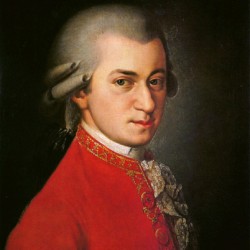A Discussion with London Piano Institute | Wolfgang Amadeus Mozart
 London Piano Institute speaks with Community Blog Online today about Wolfgang Amadeus Mozart – arguably one of the most prolific composers of the 18th century.
London Piano Institute speaks with Community Blog Online today about Wolfgang Amadeus Mozart – arguably one of the most prolific composers of the 18th century.
Community Blog Online: Good morning. We understand that London Piano Institute is an exceptional resource of information in regards to classical composers.
London Piano Institute: We definitely try to stay connected to music’s heritage.
Community Blog Online: Today’s topic is Wolfgang Amadeus Mozart. Let’s start at the beginning, shall we. Tell us about Mozart’s early life.
London Piano Institute: Mozart was born the youngest of seven – his sister Maria Anna and himself were the only two to survive past infancy.
Community Blog Online: Tragic. Was his a musical family?
London Piano Institute: It was. His father Leopold dabbled in composition and was also a violinist.
Community Blog Online: Quite a rather notable one as well…
London Piano Institute: Yes, Leopold Mozart published a rather successful violent textbook in 1756 – the same year his son was born.
Community Blog Online: Mozart began to compose at an early age. How young?
London Piano Institute: It is said that the prodigy was already composing at the age of five.
Community Blog Online: That’s very impressive even by today’s standards.
London Piano Institute: Yes, it is. Even more notable is that Mozart’s father was his only teacher at an early age. The elder Mozart taught his children multiple languages and covered a variety of academic subjects.
Community Blog Online: We understand that his sister was a musician as well?
London Piano Institute: Yes, in fact, he and his older sister toured Europe for nearly a decade from 1762 until 1773.
Community Blog Online: What is the story surrounding Mozart’s visit to the Sistine Chapel?
London Piano Institute: Mozart could recall music by memory. In a story widely circulated throughout musical channels, Mozart visited the Sistine Chapel twice over the course of three years. From memory, he reproduced a performance of Gregorio Allegri’s Miserere. This is notable because the composition was considered Vatican property and the notes were closely guarded.
Community Blog Online: Mozart did not always prefer the piano…
London Piano Institute: No – in fact, there was a time during his career where he spent the majority of his time composing violin concertos. Piano did not become the focus of his attention until 1776.
Community Blog Online: Tells about his relationship with the ruler Salzburg…
London Piano Institute: Upon his return home from a long Italian tour, Mozart was appointed by the then ruler of Salzburg as a court musician.
Community Blog Online: How long did he hold this position?
London Piano Institute: He remained until 1777. He cited low pay and the closure of the court theatre as reasons for his severance.
Community Blog Online: Let’s talk about Mozart’s time in Paris.
London Piano Institute: After resigning the position in Salzburg, Mozart took to the road. He found himself in Paris seeking employment. Unfortunately, his Parisian tour was a fruitless affair and he returned home after about a year.
Community Blog Online: This is when he was appointed as an organist and concertmaster…
London Piano Institute: Yes. This position paid three times what he made previously. Despite his talent, however, it was not an opportunity that befell him easily. His father had to rally local nobles to secure the son’s employment.
Community Blog Online: That sounds like a tough career beginning for such famous composer.
London Piano Institute: No doubt. However, once Mozart found his professional footing he left his mark on history.
Community Blog Online: Mozart worked with stage performances for quite some time. What are some highlights of his operatic career?
London Piano Institute: He was at one point denoted as the finest keyboard player in Vienna and left behind a legacy of symphonies and concertos in violin, horn, piano, and woodwind instruments far too extensive to carry on about here. Mozart was also a popular composer of sacred music and performed steadily throughout his life from childhood until shortly before his death in 1791
Community Blog Online: We appreciate your time here today. This is been a great conversation.
London Piano Institute: Thank you for having me.
Community Blog Online: Before we close, is there anything you’d like to add?
London Piano Institute: Just that those unfamiliar with Mozart should take a moment and have a listen. He is a prime example of classical style who today serves as inspiration for budding young artist from across the globe.
London Piano Institute caters to adult learners wishing to seek out a new hobby or refine skills left over from childhood piano instruction. Appointments are limited and should be made well in advance with founder Celine Gaurier-Joubert.